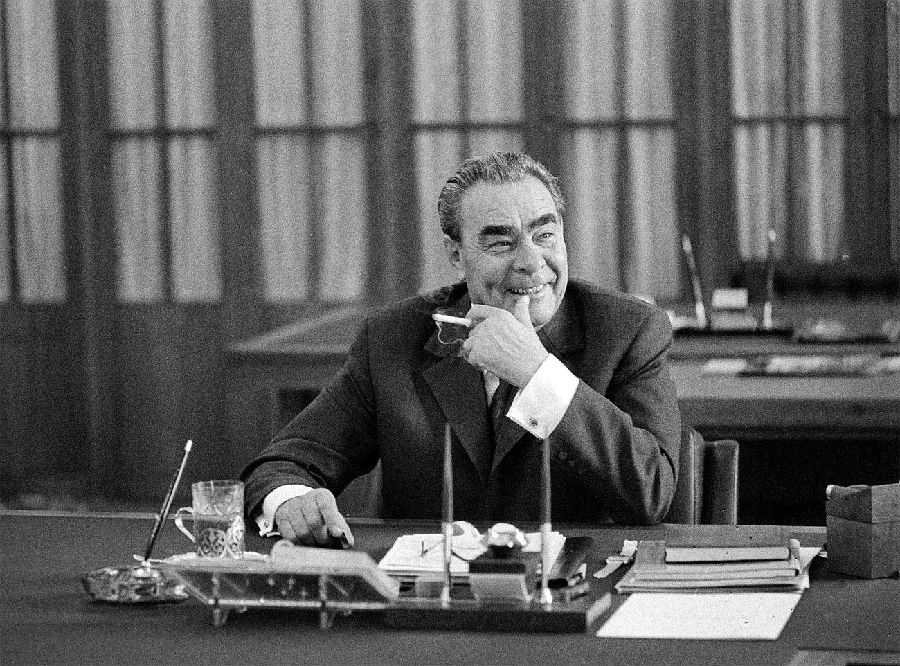In segment 25b Homo Sovieticus
25段第二部分,苏维埃人种
We encounter the homo Sovieticus, or " new Soviet Man" which, it was fondly believed, Communism would ultimately produce.
本节中我们来讲苏维埃人,又称新苏联人,人们盲目地相信,共产主义将最终造就新苏维埃人
In fact, years of deprivation and propaganda and anti-intellectualism had made the Soviet populace even too apathetic to be cynical.
事实上,数年来的贫困宣传和反智主义已经让苏维埃大众变得心灰意冷而不会愤世嫉俗了
Russian science, once the envy of all Europe,
俄罗斯的发达科学曾经为欧洲所羡慕
had been devoted to strictly military purposes for so long that the intelligentsia had basically gone into hibernation.
却在很长一段时间里都被严格限用于军事目的,以至于知识分子基本都进入了沉寂状态,
That is to say, the lucky ones who avoided the GULag and the psychiatric hospitals.
换言之,有些幸运的人,躲开了古拉格劳改所或者精神病医院

In segment 25c Gerontracy
25段第三部分,老人统治
We trace the era of Leonid Ilyich Brezhnev, a man whose bluff, pleasant personality disguised a tiny, alcohol-sodden brain.
我们来追踪列昂尼德·伊里奇·勃列日涅夫的时代,他粗豪坦率,亲切和蔼的个性掩盖了他那狭隘愚笨的头脑
A perfect nonentity, he did what he could to let the Soviet Union slip down into a mass of apathetic despair.
他是一个十足的庸人,尽其所能让苏联衰退陷入了漠然的绝望
Brezhnev was not himself, as some believed, always old and senile.
勃列日涅夫并不是像一些人所认为的那样,年老体衰
He was merely in his late fifties when Khrushchev was deposed in 1964.
1964年赫鲁晓夫被撤职时,勃列日涅夫才年近六十
Brezhnev's handling of the Czechoslovakian Prague Spring of 1968 was vigorous.
他对1968年捷克布拉格春天事件的处理手腕很是强硬
But eventually he came to exemplify the notion of "gerontocracy" rule, and this is a definition, by extremely old men.
但最终他还是体现出了老人统治的观念,老人统治的定义就是由非常年老的人进行统治












